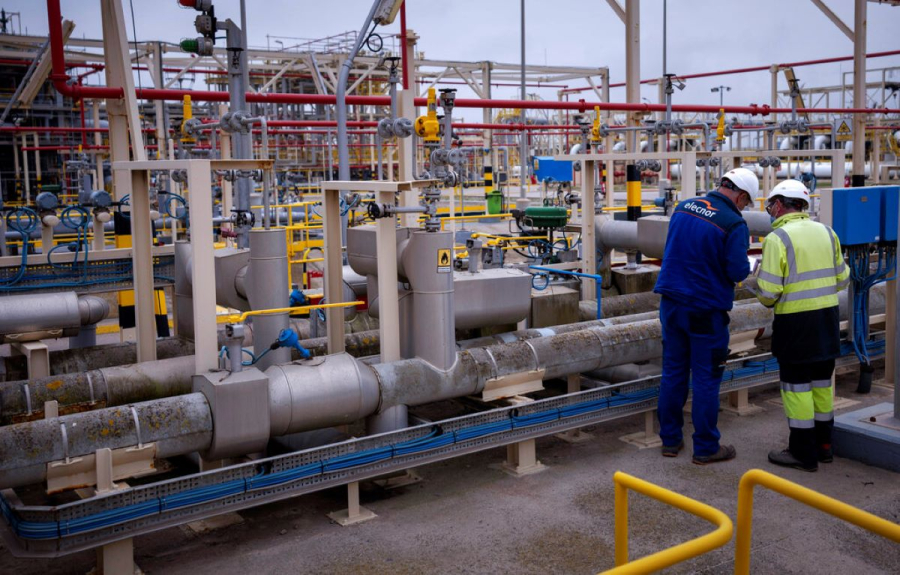
“Hawks” prevailed in Europe, and starting Monday (5/12) the price ceiling for the Russians oil. Faced with the new scenario, Moscow warned against boycotting deliveries to countries participating in the implementation of the ceiling. But the “explosive mix” also includes other factors: OPEC’s moves for a new cut in oil production.
These factors, in addition to the fact that as the temperature drops in winter, so does the demand for oil, in the midst of precision comes more fuel for the inflationary “monster”. It is expected that everything will start with a strong turmoil in the market. How will he react on Monday (5/12)? With nervousness, analysts estimate.
What will OPEC do?
The information has OPEC preparing for a significant oil production cut at Sunday’s meeting (4/12). Indeed, OPEC cut production by 1 million barrels per day last November, which caused a strong reaction from the United States.
Saudi Arabia was the target of US reactions to the decision, when it announced the decision to cut production to stabilize oil markets amid increasing demand in China.
Sources estimate that OPEC+ members can go ahead with new production cuts with the aim of supporting oil prices around the $90 level.
It is noted that with the previous reduction, oil exports from the group of 23 countries decreased by only 361 thousand barrels per day. Why did this happen? The decline in most member states was offset by the rise of Russia. This is evidenced by the data of the energy analytics company Kpler Ltd., according to bloomberg.

“Russian oil producers have done the opposite of the prevailing narrative, which is to ramp up production,” explains Victor Katona, an analyst at Kpler.
Moscow raised oil production to an eight-month high of 10.9 million barrels per day in November, according to energy ministry data, before European Union sanctions over crude oil sales. Those that go into effect next week, starting Monday (5/12).
Against this background, OPEC + is scheduled to meet on Sunday (4/12) to review production policy in early 2023. The increase in Russian oil production runs counter to the group’s efforts. The initiation of EU sanctions is expected to curb inflows from Moscow.
New EU sanctions on Russia
From December 5th, the European Union will officially start imposing sanctions on seaborne Russian oil imports: it will Prohibition of leasing and insurance of tankers Who transfers it, if the prices are higher than the ceiling that will be set jointly by the G7 and the European Union.
And this is exactly the trigger for the implementation of the price cap: insurance and freight companies are only allowed to participate in Russian transactions if oil is sold for less than $60.
With the most important shipping and insurance companies in the G7 countries, the price cap is expected to make it very difficult for Moscow to sell its oil at a higher price.
Roof, after a heated argument, yielded an agreement for a maximum selling price of $60 per barrel of seaborne Russian oil. The maximum price will depend on one adjustment mechanismwhich will keep the price ceiling at 5% below the market price.
Russia, for its part, has announced that it will not supply oil to countries that support the price cap, complicating future deals between the EU and Moscow. If this leads to a shortage of European supplies, it could send prices higher again.
The National Security Council’s strategic communications coordinator at the White House, Admiral John Kirby, was quick to praise the EU’s progress in capping Russian oil prices – a G7 initiative.
“We still believe that a price cap would limit Putin’s ability to take advantage of the oil market to continue financing the war machine that kills innocent Ukrainians,” he said.
Russian Member of Parliament Leonid Slutsky replied According to TASS, by imposing a ceiling on Russian oil prices, the EU threatens energy security and violates market laws.
The goal is to reduce Russia’s profits. On the other hand, the world price of oil should not rise from a complete ban on imports, since Russia produces about 10% of the world’s oil. This is why US Treasury Secretary Janet Yellen, among others, has warned that she is against a complete oil boycott.
As analysts estimate, prices will fluctuate sharply until the market unpacks the policy that OPEC + will follow and the consequences of the EU embargo on Russian oil, in the context of sanctions for the war in Ukraine.
Analysts predict that there will be uncertainties in the market and we will see significant “ups and downs” in prices.

“Avid problem solver. Extreme social media junkie. Beer buff. Coffee guru. Internet geek. Travel ninja.”







More Stories
“Recycling – Changing the water heater”: the possibility of paying the financing to the institution once or partially
Libya: US General Meets Haftar Amid Tensions Between Governments
New tax exemption package and incentives for business and corporate mergers..